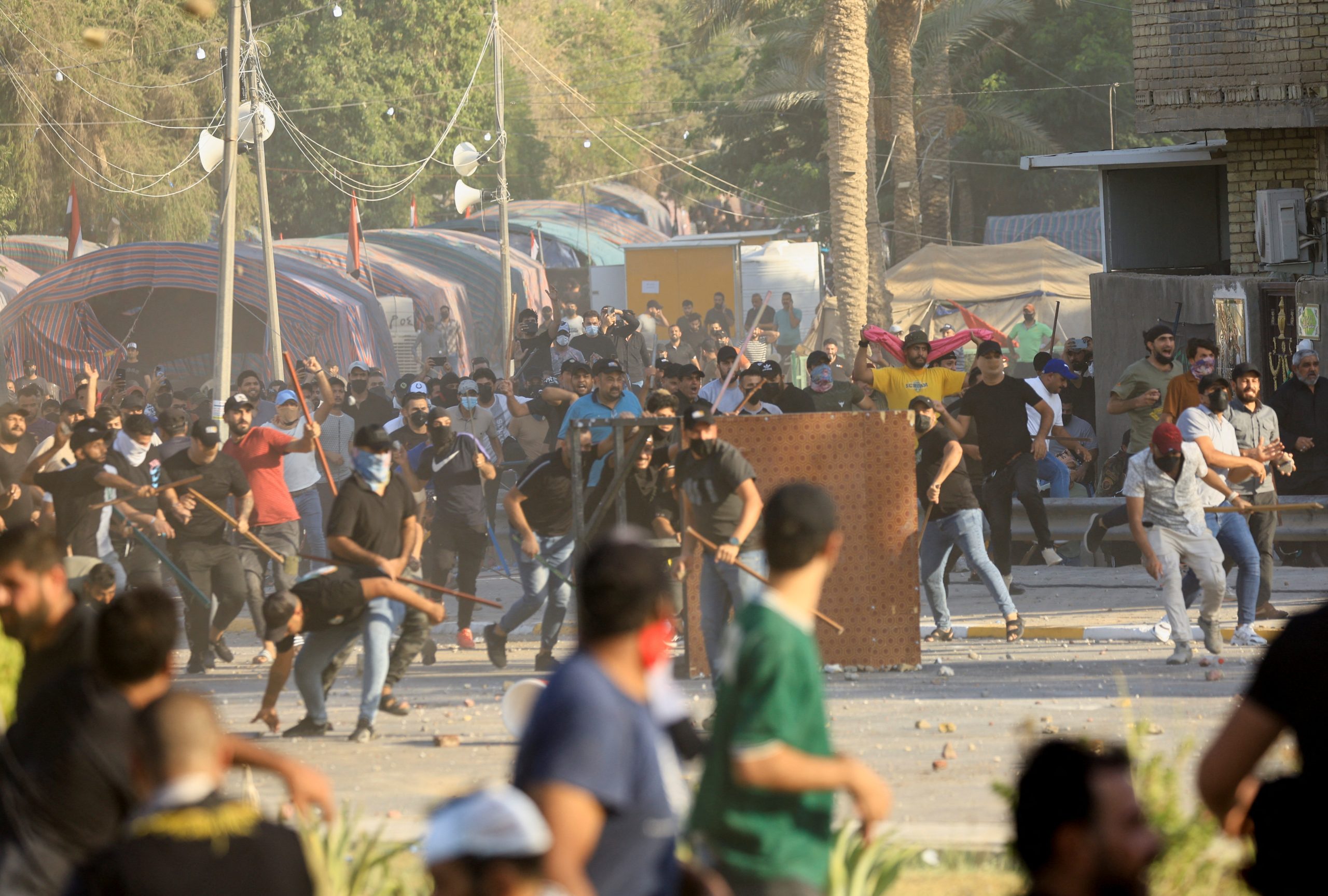
[elfsight_social_share_buttons id=”1″]
Iraq‘s powerful cleric Moqtada al-Sadr ordered his followers to end their protests in central Baghdad on Tuesday, easing the confrontation that led to the deadliest violence in the Iraqi capital in years.
Apologizing to Iraqis after 22 people were killed in clashes between an armed group loyal to him and rival Shi’ite Muslim factions backed by Iran, Sadr condemned the fighting and gave his own followers one hour to disperse, after announcing a hunger strike.
It followed a day of violence prompted by Sadr’s announcement that he would withdraw from all political activity – a decision he said was in response to the failure of other Shi’ite leaders and parties to reform a corrupt and decaying governing system.
“This is not a revolution because it has lost its peaceful character,” Sadr, a former anti-U.S. insurgent leader, said in a televised address. “The spilling of Iraqi blood is forbidden.”
As the deadline passed at around 2 p.m., Sadr’s followers could be seen beginning to leave the area in the fortified Green Zone in central Baghdad where government offices are located and where they had occupied parliament for weeks.
Monday’s clashes between rival factions of Iraq‘s Shi’ite Muslim majority follow 10 months of political deadlock since Iraq‘s October parliamentary election, which have raised fears of escalating unrest.
Sadr emerged as the main winner in the election but failed in his efforts to form a government with Sunni Muslim Arab and Kurdish parties, excluding the Iran-backed Shi’ite groups.
This week’s violence erupted after Sadr said he was withdrawing from all political activity – a decision he said was in response to the failure of other Shi’ite leaders and parties to reform a corrupt and decaying governing system.
Nationwide Curfew
The Iraqi military declared an open-ended nationwide curfew on Monday and urged the protesters to leave the Green Zone. But an Iraqi government official, speaking on condition of anonymity shortly before Sadr’s call to end the protests, said authorities could not impose control on the rival armed groups.
“The government is powerless to stop this because the military is divided into [Iran] loyalists and Sadrists as well,” the official said.
Earlier on Tuesday militants fired rockets at the Green Zone and gunmen cruised in pickup trucks carrying machine guns and brandishing grenade launchers, while most residents observed the curfew. Overnight, gun and rocket fire rang out across the city.
The United States described the unrest as disturbing and called for dialogue to ease Iraq‘s political problems. Pentagon official John Kirby denied that embassy officials were being evacuated, despite earlier reports.
Neighboring Iran closed the border and halted flights to Iraq, less than three weeks before the Shi’ite ritual of Arbaeen which draws millions of Iranians to the Iraqi city of Kerbala.
Sadr has positioned himself as a nationalist who opposes all foreign interference, whether from the United States and the West or from Iran.
He has insisted on early elections and the dissolution of parliament, saying that no politician who has been in power since the U.S. invasion in 2003 should hold office.
He commands a thousands-strong militia and has millions of loyal supporters across the country. His opponents, longtime allies of Tehran, control dozens of paramilitary groups heavily armed and trained by Iranian forces.
“There are uncontrolled militias, yes, but that does not mean the Sadrist Movement should also be uncontrolled,” Sadr said in his address calling off the protests.
Copyright 2022 Thomson/Reuters
